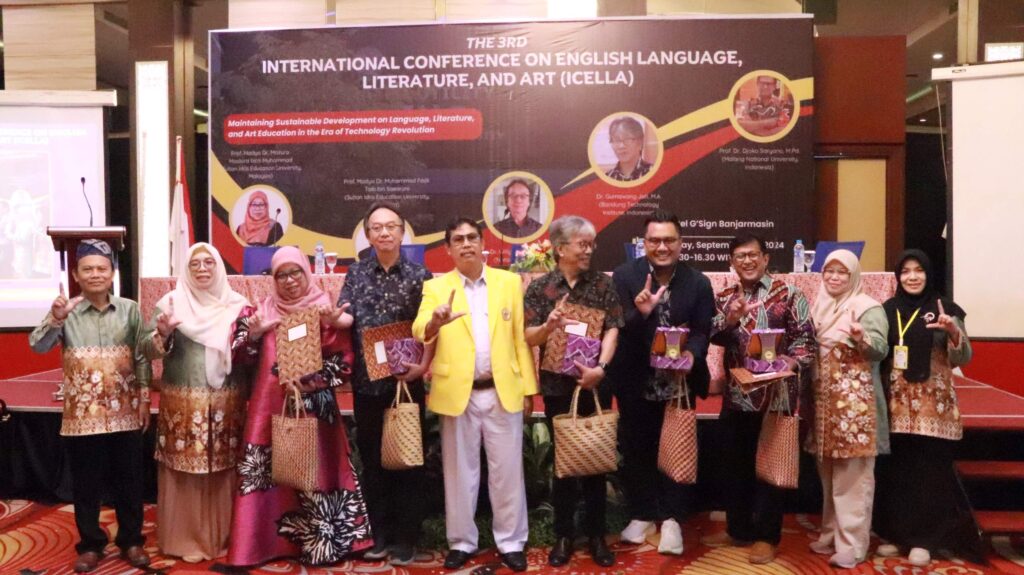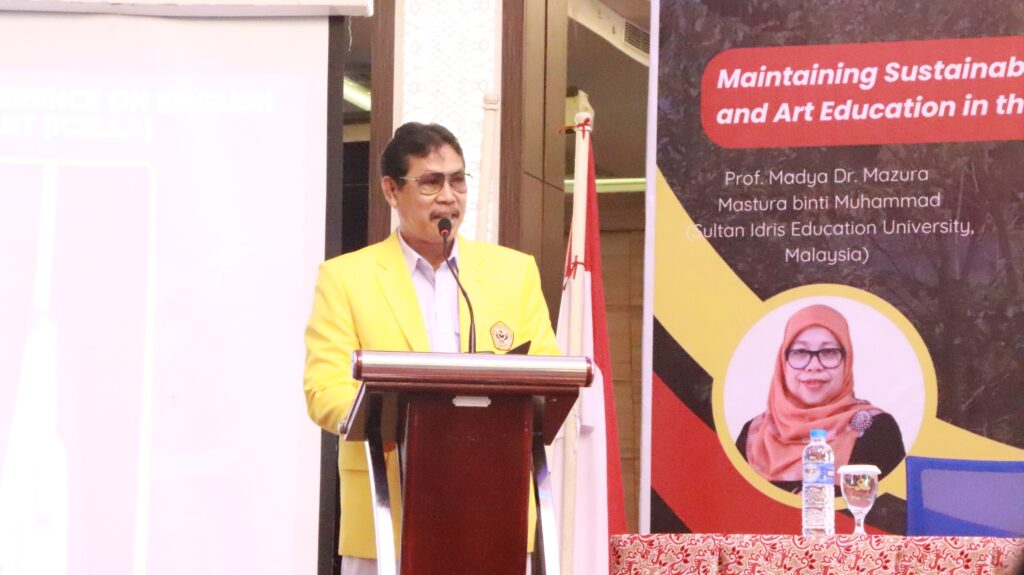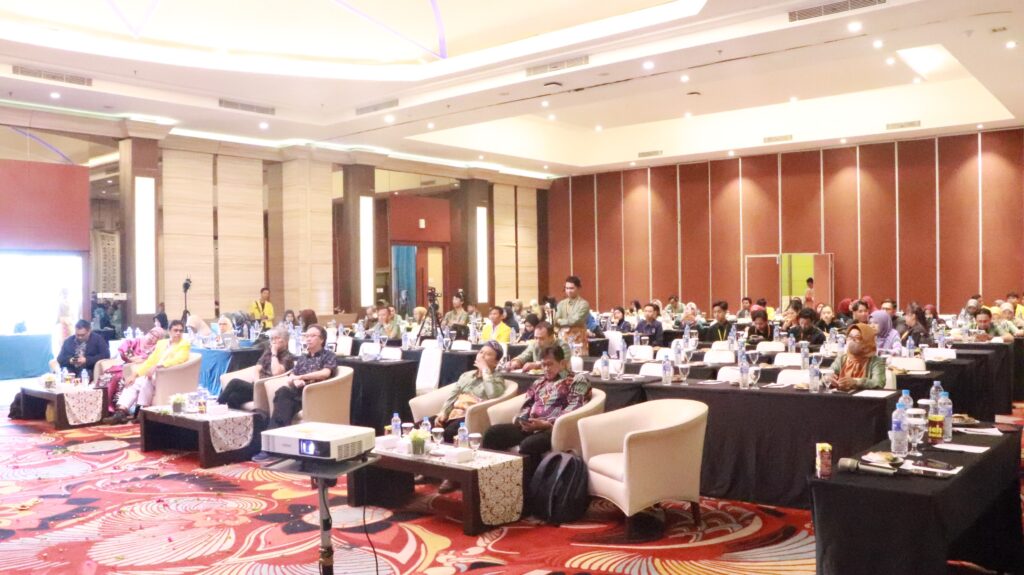06/09/2024


Banjarmasin – The Department of Language and Arts Education (JPBS), Faculty of Teacher Training and Education (FKIP), Lambung Mangkurat University (ULM) which oversees 3 Study Programs (PS) namely Indonesian Language and Literature Education (PBSI), English Language Education (PBI), and Performing Arts Education (PSP) again held the International Conference on English Language, Literature, and Art (ICELLA ) for the third time. This activity was held at the G’Sign Hotel Banjarmasin on September 6, 2024 starting at 09.00 WITA. This international conference raised the theme Maintaining Sustainable Development on Language, Literature, and Art Education in the Era of Technology Revolution.
The conference activities were divided into two sessions, namely seminar sessions from speakers and paper presentation sessions in parallel offline and online. The number of seminar participants was around 100 people and the number of paper presenters was 263. The event lasted until 18.00 WITA.
The event was opened by the Dean of FKIP ULM, Sunarno Basuki, who is also a Professor of Physical Education and was attended by invitations including PBSI Professors as well as the Coordinator of S-2 PS PBSI, Rusma Noortyani and S-3 PS PBSI Coordinator, Jumadi; a number of S-1 PS Coordinators (Korprodi) in FKIP ULM; all lecturers in JPBS FKIP ULM and participants consisting of students and the public. In his remarks, the Dean of FKIP ULM expressed his appreciation for this activity. According to him, international scale activities are one of the main supports for IKU 8 related to international accreditation of PS. He also hopes that the participants can gain as much knowledge as possible from the speakers with various scientific disciplines in the field of language and arts.
A number of speakers were asked to provide material at this conference, including Willy A. Renandya from the National Institute of Education, Singapore who delivered material on Critical Thinking; Professor of State University of Malang, Djoko Saryono who delivered material with the title “Finding the Place and Role of the Humanities: The Challenge of Poshumanism in the Era of the Science and Technology Revolution”; Mazura Mastura binti Muhammad, Professor of Universitas Pendidikan Sultan Idris (UPSI), Malaysia who talked about the Oral Language and Dialect Corpora; Gumawang Jati, a lecturer at the Bandung Institute of Technology (ITB) who explained the use of technology in English language research; and Muhammad Fazli Taib bin Saerani who is also a Professor of UPSI, delivered material entitled “Balancing Tradition and Technology: Managing Cultural Diversity and Dance Education in the Digital Age”.
One of the speakers, Willy A. Renandya, conveyed the importance of teaching critical thinking to students. Among the reasons why it is important to be taught are (1) education is not about remembering facts but thinking about what is not known and how to know more; (2) education is about empowering students to ask questions; not just answering questions; (3) education is about educating students to become independent learners, so they can access and learn from various sources including the internet; (4) education is about knowing what is right and what is wrong; (5) education is about teaching students to think more clearly and objectively; and (6) education is about teaching students to be more open-minded and tolerant. (admin)

